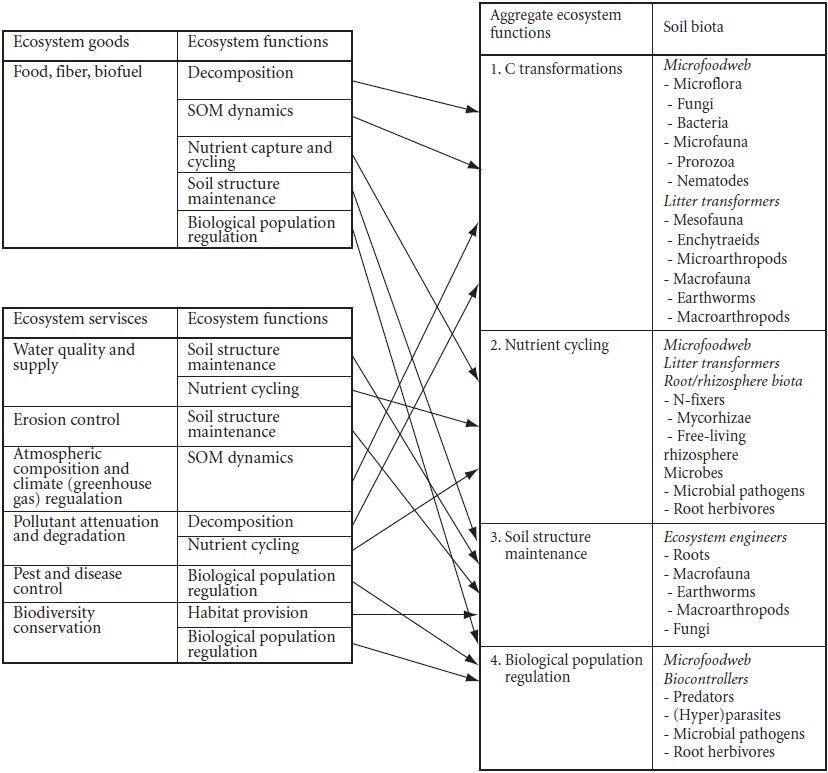The life support function of soil biodiversity
What exactly is it that make soil biodiversity so important both ecologically and economically?
At the core of this is – in simple terms - the ability of soil organisms to create and refresh soil, thereby producing and maintaining the most essential food source on our planet. When supplied with sufficient ‘raw material’ in the form of dead organic matter, the soil organisms get to work decomposing the waste to produce humus – complex organic matter with the nutrients necessary to sustain plants. Humus cannot be man-made. It is created by soil biodiversity. In an area the size of a football field, soil organisms produce organic matter equivalent to the weight of 25 cars every year! This work of the soil as ‘the great decomposer’ may never have been more important than it is today. As the global population heads towards nine billion by mid-century, healthy soils will be critical to our future food supply.
Besides the decomposition of organic matter, there are many ways that the soil food web is an integral part of landscape processes: Soil organisms sequester nitrogen and other nutrients that might otherwise enter groundwater, and they fix nitrogen from the atmosphere, making it available to plants. Many organisms enhance soil aggregation and porosity, thus increasing water infiltration and reducing runoff. Soil organisms prey on crop pests and are food for above-ground animals. They can decompose pesticides, clean contaminated land, and provide life-saving medicines.
Although major gaps of knowledge on biodiversity and ecosystem functioning in soil remain, it is obvious that this rich biodiversity with its complex processes brings immense benefits to life on earth, and last but not least, to our own wellbeing.

|
Pages
- « first
- ‹ previous
- 1
- 2
- 3
- 4